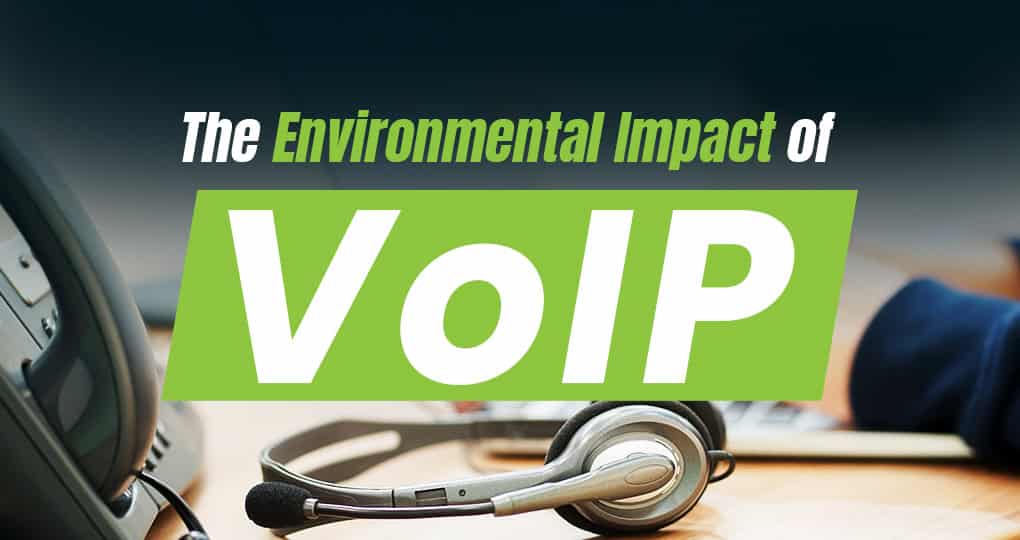VoIP technology has revolutionized the way businesses communicate, offering a host of benefits including cost savings, enhanced functionality, and flexibility. One often overlooked advantage is its positive impact on the environment. In this blog, we will explore how VoIP reduces carbon footprints compared to traditional phone systems, its role in promoting remote work, and practical ways businesses are leveraging VoIP for sustainability.
How VoIP Reduces Carbon Footprints Compared to Traditional Phone Systems
Switching from traditional phone systems to VoIP can significantly reduce a company’s carbon footprint. Here’s how:
Reduced Energy Consumption
Traditional phone systems require extensive hardware, including private branch exchange (PBX) systems, which consume a considerable amount of electricity. VoIP, on the other hand, operates over the internet, utilizing existing data networks and reducing the need for additional hardware and energy.
Minimized Physical Infrastructure
Traditional phone systems often require extensive cabling and physical infrastructure, leading to increased resource usage during installation and maintenance. VoIP systems are more streamlined, requiring minimal physical infrastructure, which translates to fewer resources used and less waste generated.
The Role of VoIP in Promoting Remote Work and Reducing Travel Emissions
VoIP technology plays a significant role in facilitating remote work, which in turn helps reduce travel emissions. Here’s how:
Enabling Remote Work
VoIP allows employees to connect seamlessly from anywhere with an internet connection, supporting the growing trend of remote work. This flexibility reduces the need for daily commuting, leading to a decrease in vehicle emissions and less congestion on the roads.
Reducing Business Travel
With high-quality voice and video conferencing capabilities, VoIP minimizes the need for business travel. Companies can conduct meetings, training sessions, and conferences virtually, significantly reducing the carbon emissions associated with air and land travel.
Practical Ways Businesses Are Leveraging VoIP for Sustainability
Businesses are increasingly adopting VoIP technology to enhance their sustainability efforts. Here are some practical ways VoIP contributes to a greener business environment:
Digital Transformation and Paper Reduction
VoIP systems often integrate seamlessly with other digital tools, reducing the need for paper-based communication. By managing communications electronically, companies can significantly reduce their paper usage and associated waste.
Energy-Efficient Workspaces
With VoIP enabling remote work, companies can optimize their office spaces for better energy efficiency. Smaller office spaces require less energy for heating, cooling, and lighting, contributing to overall energy savings.
Supporting a Distributed Workforce
VoIP allows businesses to hire talent from around the world, reducing the need for employee relocations and the associated environmental impact. A distributed workforce model minimizes travel-related emissions and supports sustainability goals.
VoIP: A Sustainable Choice for Modern Businesses
Adopting VoIP technology is not just a smart business decision; it’s also an environmentally responsible one. By reducing the need for extensive hardware, lowering energy consumption, and supporting remote work, VoIP helps companies reduce their carbon footprints.
Looking Ahead
VoIP technology offers a myriad of environmental benefits that extend beyond the usual advantages of cost savings and enhanced communication. By reducing energy consumption, minimizing physical infrastructure, and promoting remote work, VoIP helps companies reduce their carbon footprints. Businesses that adopt VoIP can take significant steps toward sustainability, leveraging the technology to further their green initiatives. VoIP is not just a smart business decision—it’s a step towards a more sustainable future.






